|
The Cinemas
Not a cinema in sight now - but not so long ago,
Winton had three. And one of them has a place in British cinematographic
history!
The Continental
Located at what is now the junction of Wimborne
and Alma Roads, the building started life as the Winton Hall and
served initially as a theatre. It showed its first films in 1911
and appears to have gone through various name changes including
Winton Electric Theatre, Winton Electric Palace, Winton Palace
Theatre and Winton Electric Picture House.
The magic of the new silent movies would have enthralled
audiences, but by all accounts the old fashioned live acts still
had a lot to offer. In the early years of the last century a cowboy
and wild west craze was triggered by Buffalo Bill's Wild West
Circus. The show visited Bournemouth in 1903 and ten years later
in October 1913, Winton was staging its own cowboy spectacular.
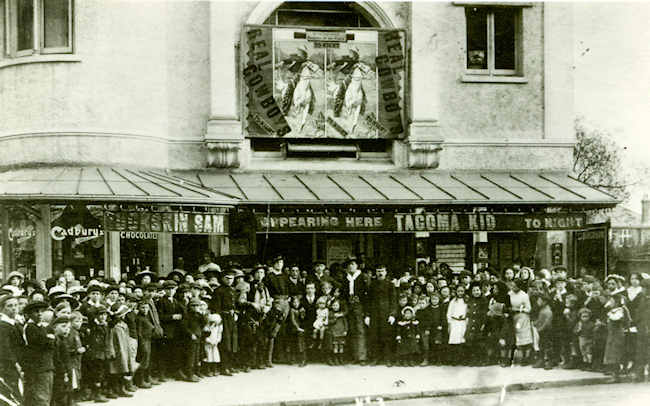 |
| Crowds gather to be photographed with the
visiting cowboys. |
The local paper reported that two heroes from the
West were attracting crowded houses at the Winton Electric Theatre
and that people were so delighted that they were buying tickets
to watch the performance over and over again.
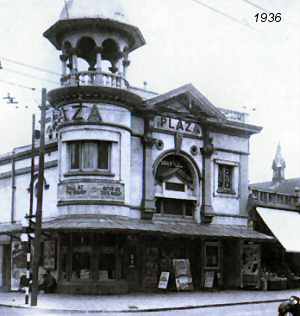 Tacoma
Kid was described as daring as any cowboy yet seen on film; and
his tricks each night left the audience open-mouthed with astonishment.
Equally popular though was his big brother Buckskin Sam who not
only knew all the gun spinning , bullwhipping and lasso spinning
ticks of the prarie, but also had a magnificent voice. Tacoma
Kid was described as daring as any cowboy yet seen on film; and
his tricks each night left the audience open-mouthed with astonishment.
Equally popular though was his big brother Buckskin Sam who not
only knew all the gun spinning , bullwhipping and lasso spinning
ticks of the prarie, but also had a magnificent voice.
Audiences were apparently moved by his rendition
of "Asleep in the Deep". The fact that the song was
about drowning at sea rather than home on the range prompts the
question of whether these two wild west heroes were actually real
cowboys at all - but it didn't matter. Winton was enthralled.
And after all, it did have real sound. But that was coming to
the movies too.
By 1930 the cinema had been refurbished with modern
projectors and a new generator in the basement. The work was overseen
by William Friese-Green, one of the pioneers of British cinema.
It is claimed that shortly after this modernisation,
the newly renamed Plaza became the first in Bournemouth to show
the new talking pictures.
More than four hundred people could sit in the
auditorium to watch.
The Plaza was owned by Harry Mears, a film business
pioneer from London who ended up being elected mayor of Bournemouth
several times.
It survived the war years and was once more refurbished
in 1953 to be re-launched as the Continental.
One of its more unusual features were twin or 'lovers'
seats in the small balcony.
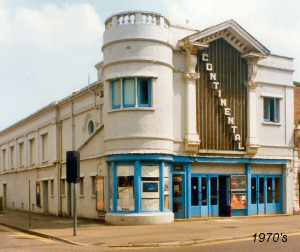 More
visible were the toilet doors situated on either side of the screen.
Those in need had to brave half-light and a short steep flight
of narrow steps to reach relief. They did so in the knowledge
that any false step would be observed and possibly laughed at
by the entire audience. More
visible were the toilet doors situated on either side of the screen.
Those in need had to brave half-light and a short steep flight
of narrow steps to reach relief. They did so in the knowledge
that any false step would be observed and possibly laughed at
by the entire audience.
The cinema changed hands in 1978 but became increasingly
seedy in the 1980's when from time to time it started to show
films of a dubious nature.
By the 1980's it was a sad shadow of its former
self - characterised inside by peeling paint, cracking plaster
and the smell of damp.
It was closed down in June 1989 and promptly demolished.
Tthe festoon screen curtain did however survive - it was sold
to the theatre at the end of Bournemouth pier.
The Continental ended its life as the oldest independently
owned cinema in the country. The site is now occupied by the Hop
and Kilderkin pub.
The Ritz
Winton's next oldest cinema was opened in 1927 as
the Victoria. It was in the centre of Victoria Parade, next to
Victoria Park. Initially a silent picture house, it was converted
to sound and reopened in 1928.
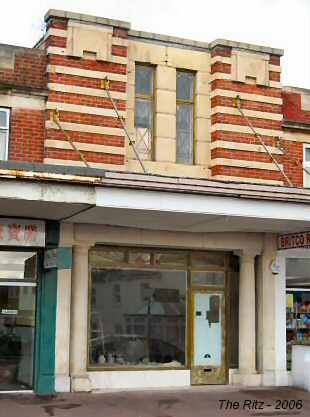 The
auditorium had three tows of seats and a stage about 5 feet high
and 25 feet wide. The walls were decorated with a swirling
"whorl" pattern. A large screen was at the back of the
stalls to prevent outside light entering. The foyer
was very long like the Moderne's, with pictures of stars on the
wall and also a row of ice cream fridges. The pay box was half-way
up the foyer, green very like the Moderne's. The venue
was refurbished in 1937 - the year the same company took over
the Moderne. The
auditorium had three tows of seats and a stage about 5 feet high
and 25 feet wide. The walls were decorated with a swirling
"whorl" pattern. A large screen was at the back of the
stalls to prevent outside light entering. The foyer
was very long like the Moderne's, with pictures of stars on the
wall and also a row of ice cream fridges. The pay box was half-way
up the foyer, green very like the Moderne's. The venue
was refurbished in 1937 - the year the same company took over
the Moderne.
It's hard to believe from what you can see from
the road now, but the auditorium could seat more than seven hundred
people and ran daily showings from 2pm. Tickets were between 9
pence and two shillings. It was closed for part of the war and
housed an ARP base.
Apart from showing films, the cinema also hosted
local talent contests. The Thursday evening Starlight Night was
always a draw as would-be stars performed their acts on a specially
erected platform. Another attraction, specially for the children,
was the cat that could normally be found sleeping alongside the
screen. The front of the auditorium, being below ground level,
had a tendency to flood during heavy rain, and filmgoers had to
slosh through a puddle to get to the ice-cream girl.
The cinema underwent repairs and modernisation in
1950 and reopened as the Ritz. The first film to be shown on its
new silver screen was the comedy "Tony draws a horse".
One of the film's stars, Derek Bond, even appeared on stage for
the grand reopening.
But television soon began to eat away at cinema
audiences and the Ritz was closed in 1959. The final week was
called 'The Ritz Repertory Week' featuring horror films with Boris
Karloff, Bella Lugosi and Lon Cheyney.
The week culminated in the Benny Hill comedy 'Whodunnit'.
It was a fitting choice as, during his wartime childhood, Hill
had been evacuated from Southampton to Winton.
There are anecdotal reports that on the very last
night all through the film there was the sound of steady sawing,
and when the audience stood up for the National Anthem, the front
row of seats collapsed! Other reports suggest that seats were
actually torn up and thrown into a pile - prompting the manager
to call the police.
Regular cinema-goer John Smith recollects:
I can only remember two managers. Courtenay Collins
later went to the Moderne , where he used to relieve as assistant
manager for Bingo. The other was Mr. Potter who once
banned me for a month. The staircase to his office had a
rope for a bannister. The Ritz had a large car-park and I always
remember raking through the incinerator to try and find any cut
off bits of film frame, or listening to the soundtrack through
the ventilators of the hall. Two films I rememember
were their first cinemascope offering 'Carmen Jones' and the remake
of 'High Sierra' calledl 'I died a thousand times' with
Jack Palance and Shelley Winters. Entrance was 1/- on Wednesday
afternoons. If they had a live show, a platform
was erected in front of the stage, often having a local choir
conducted by the local coal merchant Matt J. Dando.
The Moderne
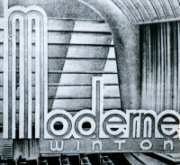 As
its name suggests, when it was opened in October 1935 the Moderne
was no re-jig of an existing cinema. It was designed by Edward
G. de Wilde Holding in the art moderne (late streamlined art-deco)
style as a modern picture house - an expression of the very latest
thinking. As
its name suggests, when it was opened in October 1935 the Moderne
was no re-jig of an existing cinema. It was designed by Edward
G. de Wilde Holding in the art moderne (late streamlined art-deco)
style as a modern picture house - an expression of the very latest
thinking.
The design featured curves, columns, chrome and
unique illuminated brickwork on either side of the stage. The
original carpets and seating were fake leopard skin which was
subsequently dyed green in the 50's.
The Moderne was the only one of the Winton cinemas
to have the Ardente deaf-aid system. It was also one of the first
cinemas in Bournemouth to install Cinemascope with full four track
stereo sound.
One of the big stars of the time, Denis O'Neil appeared
on stage throughout the opening week. His film "Barnacle
Bill" was one of the two being shown.
Planned and built during the depressed 1930's, the
Moderne had difficulty in getting off the ground. At least two
finance attempts fell though. Within two years the cinema had
been purchased by Portsmouth Town Cinemas who also owned the Ritz
just down the road.
The Ritz was, in fact, increasingly used to promote
the Moderne and both cinemas shared the same newsreel. After it
had been shown on one, the rewind boy could be seen running across
the road delivering it to the other. This was a significant saving
at the time as each newsreel cost ten shillings to hire!
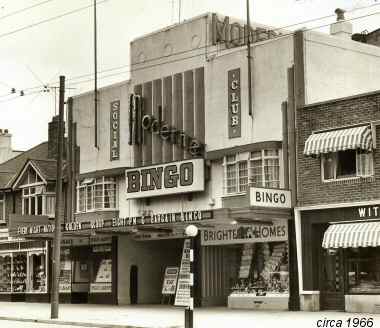 The
Moderne could accommodate a big audience of fifteen hundred, and
even had provision for a theatre organ - although none was ever
installed. The
Moderne could accommodate a big audience of fifteen hundred, and
even had provision for a theatre organ - although none was ever
installed.
In line with the newest entertainment thinking,
the balcony foyer featured a smart cafe and ice cream parlour
with chrome furniture.
To keep it clean, the cinema had a virtually unique
piece of cutting edge technology - an integrated vacuum cleaner
system that sucked the dirt out from beneath the seats. Only three
of these systems were ever installed in the UK, and the Moderne's
was the last to close.
Like the Ritz, the Moderne staged local talent contests,
the most notable of which was the Skiffle Competition held there
in the mid to late 1950's. It was the talk of Winton. The most
famous winners were the Dowland Brothers
who went on to release a number of records in the 1960's. Several
other big names got their first breaks at the Moderne.
Some performances in the early 60's were marred
by what were described as "unruly elements" and the
manager tried to instill discipline in the house by banning 250
customers.
Under threat from television, the Moderne hung on
for longer than the Ritz, but finally became a bingo hall in 1963.
Its last film was Peter Sellers' "Wrong Arm of the Law".
The Moderne Bingo Hall was initially run by a consortium
who in turn sold it to Granada.
The tradition of hosting rock acts was carried on
for some years by Granada. Groups such as Freddie and the Dreamers
and Gerry and the Pacemakers appeared on stage in the 1960's.
The bingo operation was taken over by Gala in 1997.
But as the cinema had caved in to competition from television,
the bingo eventually gave way in 2008 to external pressures that
included the Internet and online gambling.
Click here to see
the inside of the building and here
to read some memories of the Moderne.
Winton's First and Last Picture Shows
|
The Ritz
It's very first showing in 1927 was the silent
film "The Love Thief" with Norman Kerry and Greta
Nissen.
|
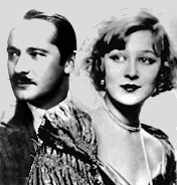 |
|
Its first film after re-opening in 1928 was
"The Small Bachelor" starring screen goddess Barbara
Kent.
|
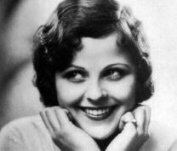 |
|
Ended its thirty years in 1959 with a string
of old classics. The very last film to be shown was "Who
done it" with Benny Hill.
|
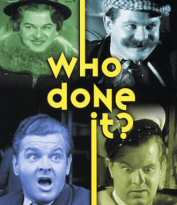
|
| |
|
The Moderne
It's first film in 1935 was "Music in
the Air" starring Gloria Swanson. The film had been
produced the year before the cinema opened.
After twenty eight years it ended its role
as a cinema in 1963 with Peter Sellers in "Wrong Arm
of the Law"
|
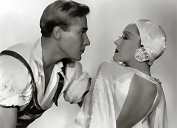
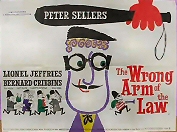
|
| |
|
The Continental
The cinema survived for eighty years through
several face lifts and name changes. It brought talking
pictures to Bournemouth and came to be the oldest independently
owned cinema in the country.
It is either fitting or ironic that the last
film to be shown there in June 1989 was called "High
Hopes" - described as a comedy about optimism in the
face of pessimism.
|
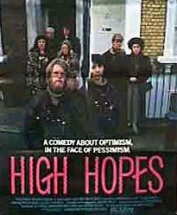 |
And if you wanted to go down town.....
For that very special treat in the 1920's. A trip
to the Westover didn't just mean watching those amazing flickering
images. You got served with a dainty tea as you gawped!

* With thanks to Winton cinema expert John Smith
for many of the details on this page.
|